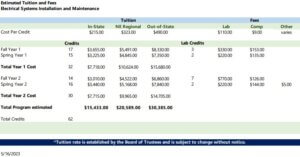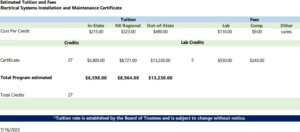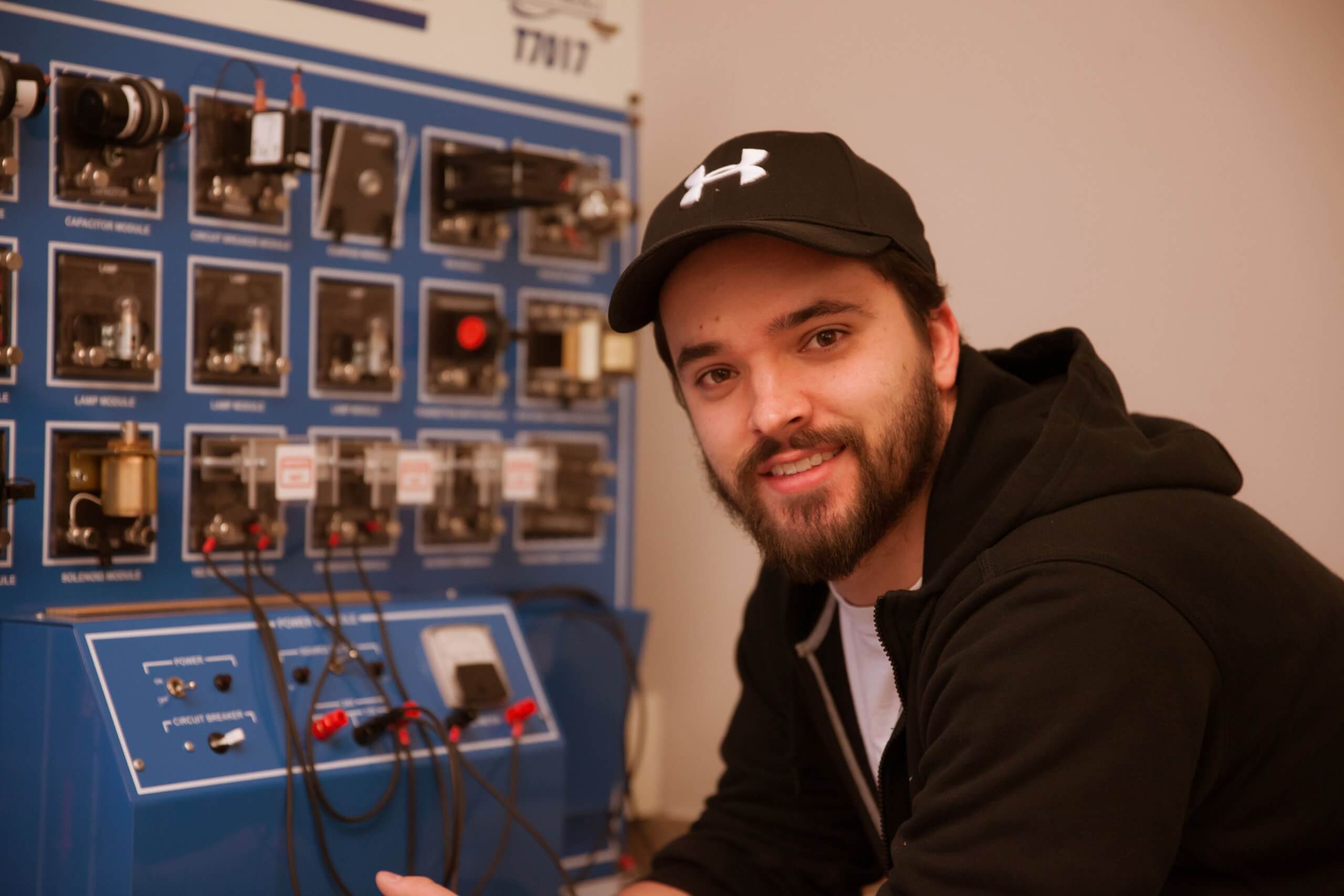Program Overview
The ESIM program provides the skills and education needed for employment opportunities in the Electrical Industry as Electricians or Technicians in residential, commercial, and industrial establishments. Graduates find upward mobility and good wages in an industry that is undergoing rapid expansion with fewer workers available. The Industry offers a wide range of jobs in building construction, industrial and institutional facilities, estimating and project management, solar photovoltaics, product sales, design, and inspection. Curriculum meets licensing requirements as set forth by the State of New Hampshire.
Potential Jobs/Careers
- Electrician
- Industrial Maintenance Technician
- Project manager and/or Estimator
- Electrical Inspector
Program Goals
The Electrical Power and Control Technologies (EPCT) degree program prepares students in the electrical industry and offers an ever-increasing number and variety of employment opportunities to qualified industrial electricians. Along with these opportunities come the responsibilities associated with one of today’s most sophisticated technologies. A well-grounded individual can expect entry-level employment with rapid upward mobility in construction, industrial electricity, electrical design, or electrical inspection. Successful completion of this program satisfies all the related education requirements for electrical licensing within the State of New Hampshire. New Hampshire license holders receive reciprocity with the States of Massachusetts, Vermont, and Maine.
Program Outcomes
Electrical Systems Installantion and Maintenance Program Outcomes:
- Demonstrate the mathematic skills necessary to solve electrical problems through the understanding of fraction and decimals, algebra, geometry, trigonometry, linear equations, roots, and practical applications of trigonometry, algebra, and geometry.
- Demonstrate proficiency in the understanding and applications of electrical theory including but not limited to Alternating Current (AC) circuits, Direct Current (DC) circuits, series circuits, parallel circuits, series/parallel circuits, voltage, current, resistance, impedance, and power.
- Have completed Occupational Safety and Health Administration’s (OSHA) 30-hour construction site and safety certification for the Construction Industry and NFPA70E training for safe electrical work protocols.
- Demonstrate proficiency in understanding and wiring electrical circuits including but not limited to residential, commercial, and industrial applications.
- Demonstrate proficiency in designing, troubleshooting, and installing electrical controls.
- Demonstrate an understanding of the operation and installation of Photovoltaic (PV) systems.
- Accumulate lab hours that count toward the work experience requirement as a licensed State of New Hampshire electrical apprentice.
Total Credits: 3 Total Credits: 3 Total Credits: 3 Total Credits: 3Course Sequencing
First Year
Second Year
Social Science Elective
Open Elective
Humanities/Fine Arts/Foreign Language Elective
Liberal Arts Elective
Course Sequencing
Certificate Requirements
In order to be successful in the ESIM or EPCT Program a student must:
- Have command of the English language;
- Have the ability to stand for extended periods of time and have the physical strength to lift components and equipment;
- Be able to purchase the minimum required tools and textbooks;
- Be able to complete requirements for college level classes;
- Have a high school diploma or equivalent;
- Be able to understand and follow both written and oral instructions;
- Have communication skills sufficient to prepare required reports;
- Have sufficient dexterity to perform manual skills;
- Be able to distinguish various sounds and noises and read instructions for course materials and other manipulative tasks (adaptive equipment acceptable);
- Have reading comprehension skills sufficient to read and comprehend service literature.

Keith Fletcher
Electrical and Advanced ManufacturingAssociate Professor, Electrical Technologies
Gary Romagnoli
Electrical and Advanced ManufacturingAssociate Professor- Electrical
Joseph Smith
Electrical and Advanced ManufacturingInstructor, Advanced Manufacturing; Department Chair Advanced Manufacturing and Electrical Technologies

Certificate


